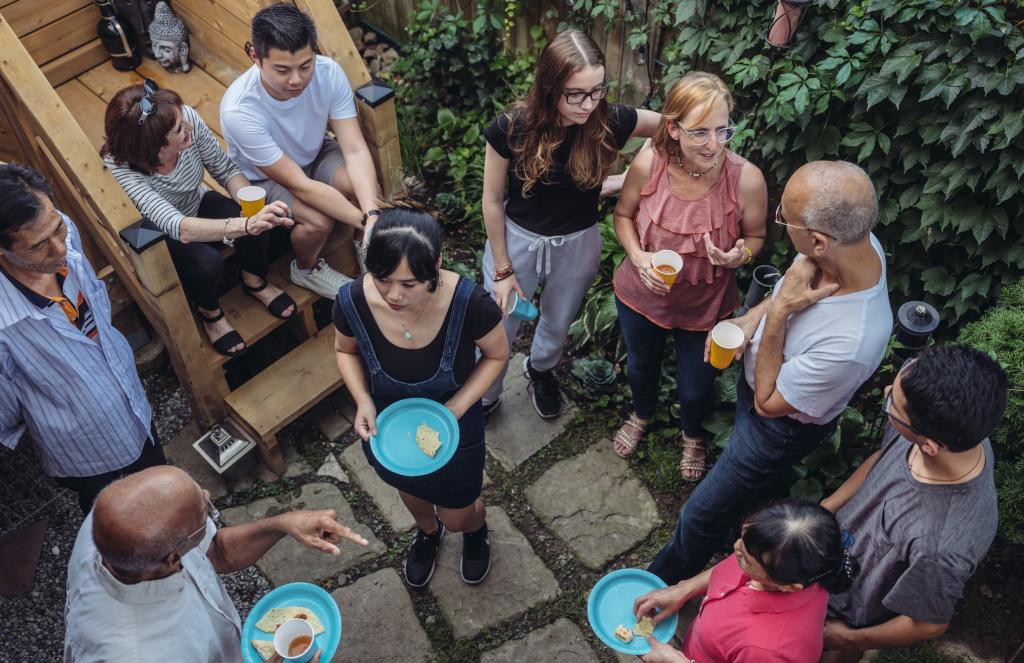Thessaloniki gets ready for its metro launch in November
The underground rapid transit lines have been under construction for almost two decades due to various project delays
 TheMayor.EU logo
TheMayor.EU logo 
What better chance to get in touch with the neighbours, Source: Fête des voisins - Luxembourg on Facebook
This community-driven celebration offers people around the world a chance to form local ties without barriers, something that was sorely lacking in the past two years
The past two years of Covid restrictions and lockdowns have been very hard on a lot of people, particularly from a social aspect. Many were separated from their families and friends for months on end, isolated in a cold urban environment, and void of human connection. However, a French tradition might just have the remedy – connecting with your neighbours.
This year, 20 May is declared Neighbours’ Day. The idea is to invite the people living near you, and whom you do not know or know little about, for a shared meal in a community celebration. The initiative is also open to municipalities and housing organisations, who can receive coordination assistance and guidance from a central office of the initiative in Paris.
You decide on a place: entrance hall, garden, courtyard, sidewalk. Talk to your neighbours, make sure everyone is on board and discuss who brings what to eat and drink. If your municipality is a partner in the initiative, you can contact them and receive additional aid.
In some countries, like Luxembourg, where 44 local authorities have opted to back Neighbours’ Day, they could even install roadblocks and banners to offer public space for celebrations, as well as tables, benches and invitation cards, etc. Alternatively, if your local authorities are not part of the initiative, you can download some official promotional material from the organisation. And keep in mind that people would probably not mind the noise if they get an invite.
The main goal of Neighbours’ Day is to counteract the tendency towards social and community isolation in big urban centres. As more and more Europeans live in rented apartments in densely populated areas, changing jobs and countries or cities quite often, community ties in a neighbourhood are frequently broken and fragmented. But they can be rebuilt and this is a way for people to reach out.
At the same time, Neighbours’ Day is a chance for whole neighbourhoods to come together and provide that social safety net people quite often lack.
Since the start of the pandemic, the Neighbours' Day initiative has suffered as community gatherings were made illegal. The organisers tried to remedy the situation by launching an iteration of the initiative, called ‘Neighbours’ Day – On the Balcony’. This, however, was met with little success, while many frequent participant municipalities and associations dropped the initiative altogether.
Now, as Covid restrictions around Europe are falling to the wayside, people are eager to get together and rekindle ties to the local community.
Neighbours' Day occupies a strange place, right between a non-formal community-driven project and an international movement with the backing of the European Parliament. The initiative started in Paris in 1999, by one Atanase Périfan, who was later elected to the City Council of the French capital in 2014. Périfan also created an organisation called the European Federation of Local Solidarity to coordinate the initiative as it expanded.
In its first edition, Neighbours’ Day had 800 participating buildings, however, it quickly grew by attracting the attention of municipalities both in France and abroad. By 2008, Périfan’s organisation, claimed that 28 European countries had taken part in the day totalling 8 million participants, with 6 million of them in France.
The initiative has also crossed the confines of the European Continent, to reach faraway places like Madagascar and Canada.
In 2017, Neighbours’ Day received the European Parliament’s high patronage, as then-President Martin Shulz explained that building communal ties is a central point of the European project. Growth continued until 2019, when the initiative had 1390 participating municipalities and housing associations, with a total of 30 million people, 10 million of which being in France. In 2020-2021, the initiative had to take a break due to COVID restrictions.

The underground rapid transit lines have been under construction for almost two decades due to various project delays

Now you can get your wine in Talence by paying directly in Bitcoin

That’s because the state has to spend money on updating the railway infrastructure rather than subsidizing the cost of the popular pass

Rethinking renewable energy sources for the urban landscape

The examples, compiled by Beyond Fossil Fuels, can inform and inspire communities and entrepreneurs that still feel trepidation at the prospect of energy transition

Now you can get your wine in Talence by paying directly in Bitcoin

The 10th European Conference on Sustainable Cities and Towns (ESCT) sets the stage for stronger cooperation between the EU, national and local level to fast track Europe's transition to climate neutrality.

At least, that’s the promise made by the mayor of Paris, Anne Hidalgo

The underground rapid transit lines have been under construction for almost two decades due to various project delays

At least, that’s the promise made by the mayor of Paris, Anne Hidalgo

Hostal de Pinós is located in the geographical centre of the autonomous region

Despite its church-y name, the district has long been known as the hangout spot for the artsy crowds

Urban dwellers across the EU are having a say in making their surroundings friendlier to people and the environment.

Forests in the EU can help green the European construction industry and bolster a continent-wide push for architectural improvements.

Apply by 10 November and do your part for the transformation of European public spaces

An interview with the Mayor of a Polish city that seeks to reinvent itself

An interview with the newly elected ICLEI President and Mayor of Malmö

A conversation with the Mayor of Lisbon about the spirit and dimensions of innovation present in the Portuguese capital














